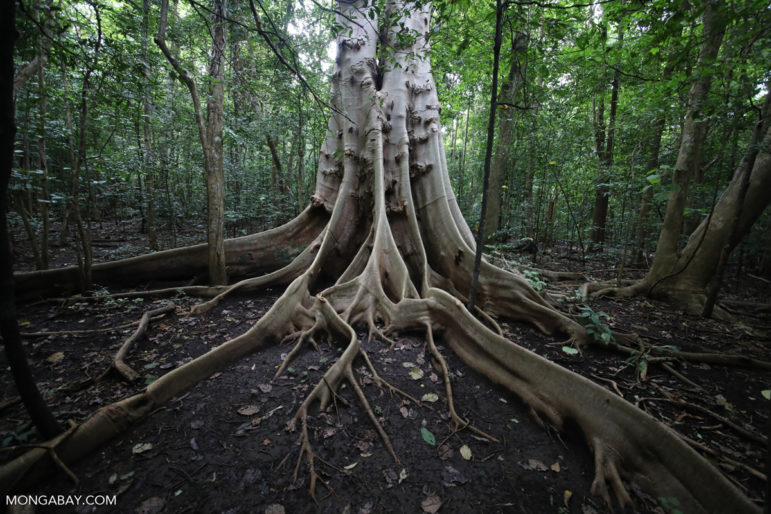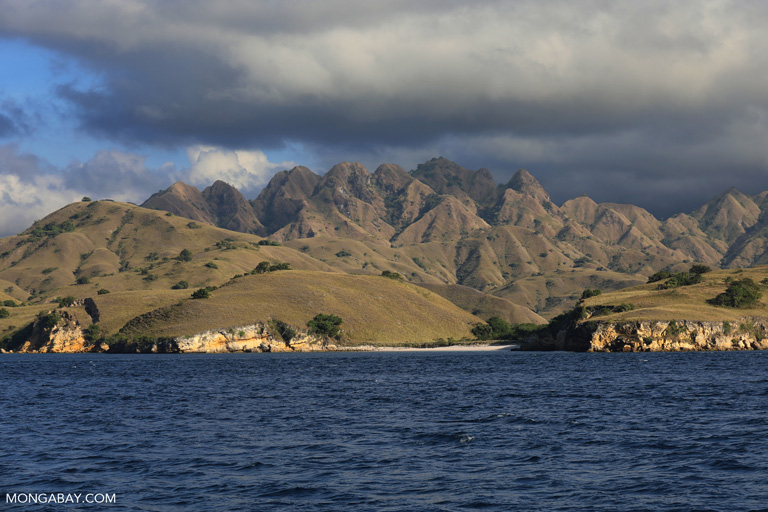The application for this opportunity is now closed.
Mongabay is working on a reporting project that combines science and journalism to evaluate the effectiveness of different conservation strategies. We are looking for scientists who have strong literature synthesis skills, are able to work independently in a rigorous and unbiased way with different types of scientific evidence, and are open-minded and willing to depart from the traditional academic work.
This project contributes to a growing demand for evidence on the actual, on-the-ground impact of different conservation strategies, helping the public, conservation practitioners, donors, and decision makers make sense of a large but disparate body of literature. The evidence on each conservation strategy will be presented in an engaging, interactive, approachable, yet rigorous way, together with an investigative story about each strategy by a Mongabay staff writer.
We are looking for one or two scientists (advanced graduate students, postdocs) who will carry out a literature review on a specific conservation strategy, collaborate with a journalist on creating a story, and help make interactive visualizations of the collected evidence. Funds for 1-3 months of research work will be available. Projects will have to be completed by mid-December 2017. Examples of the strategies that we are interested in include, but are not limited to regulations of trade with wildlife, environmental law enforcement, environmental advocacy, ecotourism, land purchase schemes, protected areas, including marine protected areas, and others.

One of the foremost challenges in global biodiversity conservation efforts is understanding the effectiveness of different strategies for achieving conservation outcomes. While there are many studies evaluating conservation impacts of individual conservation programs, these are often scattered in the scientific literature, and limited inferences can be drawn from them individually because of the short time scale and geographic specificity. Importantly, conservation practitioners, donors, and decision makers often lack the time, resources, or expertise to thoroughly evaluate the existing evidence. This project aims to improve understanding of conservation impact: using an investigative, data-driven journalistic and scientific approach, we are trying to better evaluate the relative performance of conservation interventions and mechanisms. Crucially, we are trying to make the results approachable, relatable, and engaging to the public, conservation practitioners, donors and decision makers, yet rigorous and evidence-based.
The initiative involves a close collaboration between a journalist and a scientist. The role of the scientist(s) is to conduct an extensive literature review on various conservation interventions and mechanisms that have been widely implemented in recent decades, including terrestrial and marine protected areas, certification systems, indigenous reserves, among others. Having extracted data from the literature (we are using a standardized template), the scientist will then help create, together with our web developer collaborators, an interactive visualization of the data. Using this data, together with interviews with practitioners and experts, the team will develop an in-depth story on each reviewed conservation strategy.
To build up on our base of strategies that we have already reviewed (forest certification, payments for ecosystem services, and community based forest management), and tested our approach on, we are seeking scientists interested to contribute their expertise on additional conservation strategies, including, but not limited to: wildlife trade regulations, environmental advocacy, environmental law enforcement, ecotourism, marine protected areas, debt-for-nature swaps and land easements. Whereas this project is especially focused on tropical forests, we will welcome experts and contributions from all biomes and all levels of implementation (locally applied strategies, such as RSPO certification, as well as globally applied strategies, such as environmental awareness campaigns or international regulations).
Duties:
– Carry out a literature review (or use existing reviews if available) on a specific conservation intervention, extracting data from the literature using (and adapting) our standardized template.
– Work together with data visualization team to create an interactive graphic representing an evidence map resulting from the literature review.
– Work closely together with a Mongabay journalist on a story that will be published on Mongabay and will include the interactive visualization, and an in-depth coverage of the conservation strategy.
– Ensure data quality, correct interpretation of the scientific literature, and overall rigor of the story.
We expect the work for one conservation strategy to take 1-2 months of full-time work, but the work can be carried out on a part-time basis too.
Skills and requirements:
This project is unusual in the sense that it combines science and journalism. Therefore, we are looking for a scientist who is specifically interested and invested in outreach, science communication, and making evidence-based conservation science outcomes applicable, engaging, and approachable by non-scientists. Some skills that are required in this position are:
– Ability to carry out a literature review independently
– Ability to discern different types of evidence, evaluate the strength and breadth of data
– Strength in data synthesis, seeing the big picture yet being detail-oriented and rigorous
– Good communication and data visualization skills
– Experience in ecology, environmental science, or conservation science
– Willingness to depart from the traditional academic model of research. Even though submitting the results of the literature review to a peer reviewed journal is not precluded, it will not be the main focus of the project.
– Excellent skills in data organization and maintenance
– Strong motivation to making a difference in conservation
– Prior experience: at least two years of graduate school in a relevant discipline completed, or equivalent experience.
– Location: This position can be based anywhere in the world, but the scientist must be willing to communicate efficiently with collaborators across different time zones.

How to apply
Applications will be considered on a rolling basis until the position has been filled. On the application, you will be asked to fill out basic contact information, pay rate expectations, reference information (2), and to upload the following two documents:
• Cover letter – please provide a specific example of the conservation strategy you have expertise in and wish to cover, your scientific experience in conservation, as well as reasons for wanting to take on this project (1-2 pages). Please include your preferences in terms of timing. The project will be concluded at the end of 2017, and all reviews will have to be completed by mid-December.
• Resume – (1-2 pages, including a publication list)
Applications must be submitted in English. Please note that you do not need to provide letters of recommendation and we will not reach out to references before getting your permission to do so.